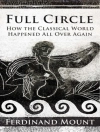1974 WAS A YEAR OF MAJOR CHANGE AROUND THE WORLD.
Presidents resigned, emperors were deposed, and new governments came to power. On both sides of the Atlantic, major political figures left the scene, either through resignation or electoral defeat. Leaders of nations died. Regimes crumbled.
In society, the second wave of feminism grew in strength and the rights of historically underrepresented groups were more powerfully asserted. The BBC aired the first lesbian kiss on British TV. In Italy, the right to divorce was protected in a landmark referendum. However, terrorism and the pursuit of political ends through violence became ever more commonplace.
The arts and entertainment industries were in the midst of a period of great creativity and innovation. In America, Scorsese, Spielberg and Coppola were making their mark. Popular music was arguably at a low point but the first stirrings of the punk revolution to come could be heard in New York clubs. And a Swedish band that were to become a phenomenon won the Eurovision Song Contest.
The roots of many aspects of today's society which we take for granted lie in the 1970s and particularly in this, the decade's pivotal year.
Sobre o autor
NICK RENNISON is a writer, editor and bookseller with a particular interest in modern history and in crime fiction. He is the author of 1922: Scenes from a Turbulent Year, A Short History of Polar Exploration, Peter Mark Roget: A Biography, Freud and Psychoanalysis, Robin Hood: Myth, History & Culture and Bohemian London, published by Oldcastle Books, and the editor of six anthologies of short stories for No Exit Press. He is also the author of The Bloomsbury Good Reading Guide to Crime Fiction, 100 Must-Read Crime Novels and Sherlock Holmes: An Unauthorised Biography. His crime novels, Carver's Quest and Carver's Truth, both set in nineteenth-century London, are published by Corvus. He is a regular reviewer for both The Sunday Times and Daily Mail.












